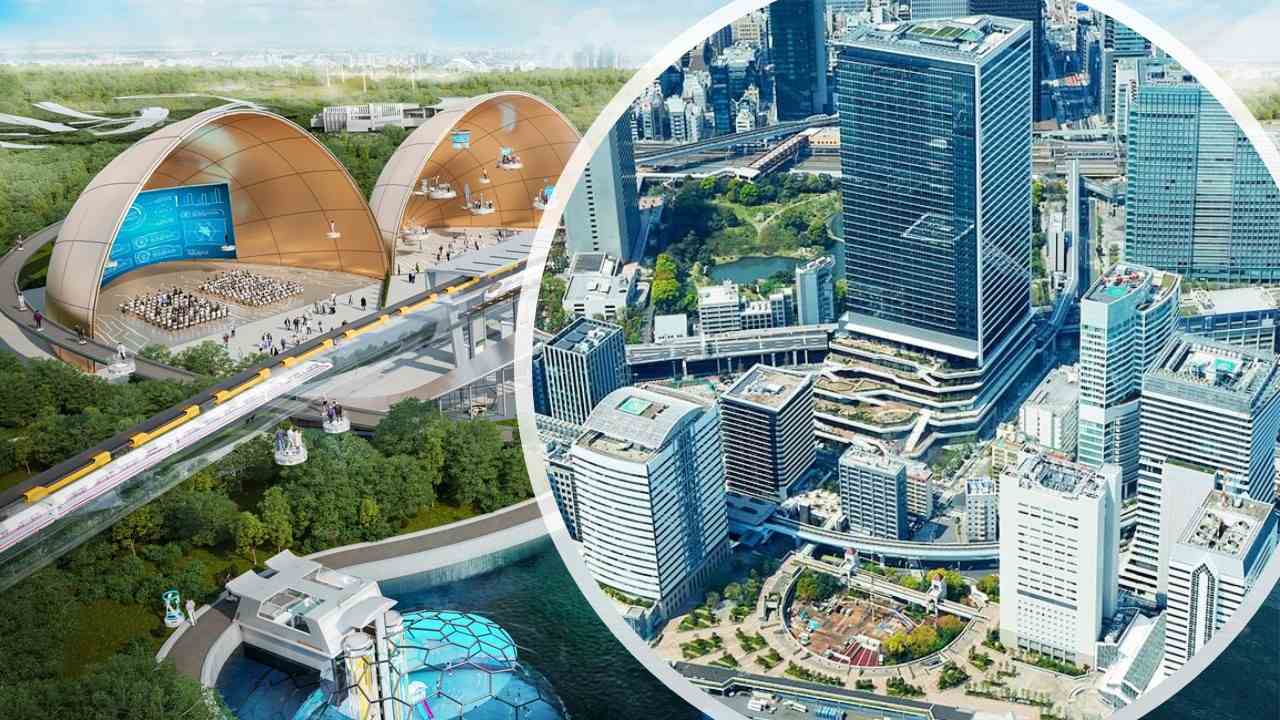Construction and Urban Development in Tokyo, Japan
- By
- Pooja |
- September 27, 2023 |
- Civil Engineering, Innovation,

Table of Contents
Shinjuku District: High-Rise Buildings and Vibrant Urban Center:
Sustainable Urban Development:
Tokyo's skyline is a testament to its urban development, with skyscrapers playing a prominent role in shaping the cityscape. These towering structures showcase innovative architectural designs, cutting-edge engineering, and state-of-the-art technology.
Landmarks such as the Tokyo Tower, Roppongi Hills Mori Tower, and the recently completed Toranomon Hills represent the city's ambition to reach new heights. These skyscrapers not only provide office space but also house luxury hotels, observation decks, shopping complexes, and restaurants, creating vibrant urban hubs within the city.
Tokyo Skytree:
The Tokyo Skytree is an iconic symbol of Tokyo's skyline and a remarkable feat of engineering. Standing at a height of 634 meters, it is the tallest tower in Japan and one of the tallest in the world. The Skytree serves as a communication tower, transmitting television and radio signals across the region.
Its observation decks offer breathtaking panoramic views of the city, attracting both locals and tourists. The tower's design blends traditional Japanese aesthetics with modern architectural elements, making it a significant cultural and architectural landmark.
Shinjuku District: High-Rise Buildings and Vibrant Urban Center:
Shinjuku is one of Tokyo's most vibrant and dynamic districts, characterized by its high-rise buildings and bustling urban center. It is home to an array of commercial, entertainment, and shopping establishments, making it a major hub for business and leisure activities.
The district boasts iconic landmarks such as the Tokyo Metropolitan Government Building, which offers panoramic views of the city, and the Shinjuku Park Tower, a mixed-use skyscraper housing offices, a hotel, and luxury residences. Shinjuku's lively atmosphere, diverse dining options, and vibrant nightlife contribute to its reputation as a must-visit destination in Tokyo.
Efficient Transportation Systems and Infrastructure Projects: Tokyo's transportation systems are known for their efficiency and reliability, facilitating seamless travel for residents and visitors alike. The Tokyo Metro, consisting of an extensive subway network, connects various parts of the city and ensures efficient commuting.
With frequent train schedules, cleanliness, and user-friendly signage, the Tokyo Metro is a preferred mode of transportation for millions of passengers daily. Additionally, Tokyo continually invests in infrastructure projects to enhance transportation connectivity, such as expanding train lines, constructing new stations, and improving intercity rail networks like the Shinkansen, enabling swift travel between major cities in Japan.
Haneda Airport Expansion:
Haneda Airport, located close to the city center, is a critical gateway for domestic and international air travel in Tokyo. The airport has undergone significant expansion projects to accommodate the growing demand for air travel.
The addition of new terminals, runways, and advanced facilities has increased its capacity and improved the overall passenger experience. Haneda Airport's strategic location, efficient operations, and proximity to major business districts and tourist attractions make it a preferred choice for travellers.
The airport's expansion initiatives have bolstered Tokyo's air travel connectivity, supporting the city's status as a global economic and tourism hub.
Sustainable Urban Development:
Tokyo has taken significant strides towards sustainable urban development, incorporating eco-friendly practices and technologies into its construction projects. The city has implemented initiatives to reduce carbon emissions, promote renewable energy, and enhance energy efficiency in buildings.
Tokyo's commitment to sustainability is evident in its eco-friendly architecture, with buildings designed to optimize natural light, incorporate green spaces, and utilize energy-saving systems. Additionally, the city has invested in sustainable transportation solutions, such as the promotion of electric vehicles and the development of cycling infrastructure, to reduce reliance on fossil fuels and mitigate traffic congestion.
Tokyo's dedication to sustainable urban development not only enhances the quality of life for its residents but also positions the city as a global leader in environmentally conscious urban planning.
Preserving Cultural Heritage:
Amidst Tokyo's modern skyscrapers and bustling urban centers, the city has also prioritized the preservation of its rich cultural heritage. Historic neighbourhoods such as Asakusa and Yanaka showcase traditional Japanese architecture, temples, and shrines that offer a glimpse into Tokyo's past.
Efforts have been made to protect and restore historical buildings and landmarks, ensuring their significance is preserved for future generations. The integration of traditional elements into urban development projects, such as the use of traditional materials and architectural styles, reflects Tokyo's commitment to maintaining a balance between modernity and tradition.
By preserving its cultural heritage, Tokyo celebrates its history and cultural identity, providing residents and visitors with a deeper appreciation of the city's roots.
Furthermore, Tokyo's urban development initiatives have not only focused on physical infrastructure but also on enhancing the overall quality of life for its residents. The city has invested in creating green spaces, parks, and recreational areas, offering residents a respite from the urban hustle and promoting a healthier and more sustainable lifestyle.
Urban planning in Tokyo prioritizes the creation of walkable neighbourhoods, efficient public transportation systems, and access to amenities and services, ensuring convenience and liability for its residents.
In conclusion, Tokyo's construction and urban development efforts have encompassed various aspects, including sustainability, preservation of cultural heritage, and the improvement of residents' quality of life. Through innovative architectural designs, iconic landmarks, efficient transportation systems, and a commitment to sustainable practices, Tokyo has established itself as a leading global city.
The blend of modern skyscrapers and historic neighbourhoods reflects Tokyo's ability to harmoniously combine tradition and progress. As the city continues to evolve, it remains dedicated to creating a vibrant and sustainable urban environment that embraces its rich cultural heritage and meets the needs of its residents and visitors alike.

Pooja
Founder at gcelab.com, Pooja is an Entrepreneur unlocking human potential. Working in the Principles of Lean Start-up, Pooja believes in Transparency and User Happiness the most. Pooja’s background in teaching gives her a sophisticated grasp on even the most tedious aspect of course building. She is passionate about people who believe that good is not enough.



